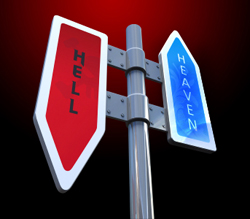Dear Parishioners,
Maybe you have seen an
advertisement on television touting a “crash-proof” retirement plan. Quite frankly, I do not have enough knowledge in the area of investments and
finance to tell anyone whether this is
or is not valuable financial advice
to help plan for the future. You would
have to check it out for yourselves.
Sorry.
What I do know, however, is
that no matter what we may plan for in the future, unless Jesus is at the center of it, our plans may, in fact, be ill
conceived. Do you remember the parable
that Jesus told regarding accumulated wealth?
Listen to the words from St. Luke’s Gospel:
Then [Jesus] told them a parable. “There was a rich man whose land produced a bountiful harvest. He asked himself, ‘What shall I do, for I do not have space to store my harvest?’ And he said, ‘This is what I shall do: I shall tear down my barns and build larger ones. There I shall store all my grain and other goods and I shall say to myself, “Now as for you, you have so many good things stored up for many years, rest, eat, drink, be merry!”’ But God said to him, ‘You fool, this night your life will be demanded of you; and the things you have prepared, to whom will they belong? Thus will it be for the one who stores up treasure for himself but is not rich in what matters to God.” (Lk. 12: 16-21)
The first thing
that I noticed here was that the rich man questioned himself for advice. What shall I do? From my
perspective, it seems it would have been much wiser to ask God first for advice. What do You, Lord, think I should do? We need to pray constantly for the wisdom
to make good decisions in life.
Next, Look at
God’s response to the rich man’s plan: You
fool. That often characterizes the
result of any situation when we think that we—and not God—are
ultimately in charge of everything. Many people today may not overtly proclaim
that they do not believe in God.
However, so many of us live in a manner as if God did not exist. We foolishly
depend more on ourselves—to a greater or lesser degree—rather than seek out God
and let God (speaking through the Sacred
Scriptures and the Church) influence
our thoughts and actions. Pope Benedict XVI referred to this mode
of living as a practical atheism. The tragic result of it is that Jesus’
teaching frequently goes unheeded and ignored.
Nobody, not even God Himself, is going to tell us what to do. And we become all too comfortable and
complacent with this attitude.
Third, death becomes the great equalizer. Tempus
fugit, momento mori. Time is
fleeting, remember death. We may not want
to face the inevitable reality that we all are going to die, face final
judgment before God, and live either with God (heaven) or alienated from God
(hell) for all eternity. The choices we
make here do have eternal consequences.
Are we prepared for this?
Finally, what
are the spiritual treasures that we
are storing up now? As we near the end
of this Jubilee Year of Mercy, I
suggest that we refer to the Corporal
and Spiritual Works of Mercy for some sound advice.
Don’t be like
the foolish rich man in the parable. Act
now to prepare for eternity.
Forever is
a really, really long time.
Fr. Ed Namiotka
Pastor





